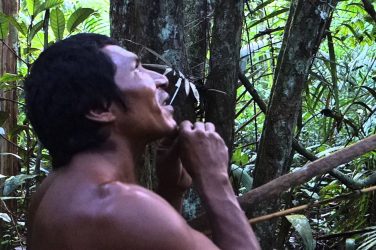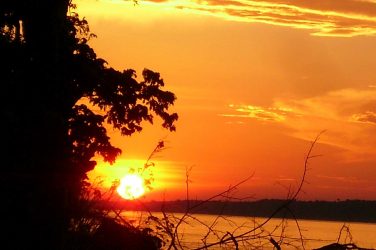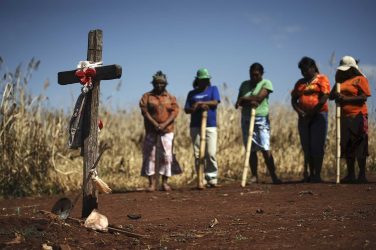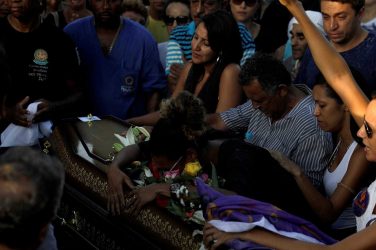
The Brazilian government’s Indigenous Affairs Department (FUNAI) has severely criticized the authors of a controversial editorial in Science magazine who called for forced contact with uncontacted tribes. In an open letter criticizing controversial anthropologists Kim Hill and Robert Walker, uncontacted tribes experts at FUNAI stress the threats facing uncontacted peoples.
These include violence from outsiders who steal their land and resources, and diseases like flu and measles to which they have no resistance.
They reject what Hill and Walker call “controlled contact” as “a severe violation of these peoples’ right to determine their own lives.”
They added: “We feel compelled to express our disagreement with the ideas of some anthropologists… that ‘controlled contact’ is the only possible strategy for protecting these peoples.
“There is never absolute control in contact situations, even in cases when the teams have all the resources they need to operate efficiently.”

In the editorial Hill and Walker acknowledged the devastating impact first contact can have, but claimed that “controlled contact” is “a better option than a no-contact policy” and should be initiated after “conceiving a well-organized plan.”
FUNAI has joined the international call, led by tribal peoples, to protect uncontacted tribes’ land rights and to give them the chance to determine their own futures. Several Brazilian NGOs, including CIMI, ISA and CTI, as well as human rights organization Survival International, are campaigning for this right to be upheld.
Speaking as part of Survival’s Tribal Voice project, Olimpio Guajajara, an indigenous man from the eastern Amazon, rejected forced contact, saying: “We are aware that some anthropologists have been calling for ‘controlled contact’ with the uncontacted Indians… We will not allow this to happen because it will be another genocide of a people… of an indigenous group which doesn’t want contact.”
Earlier this year, Survival’s global campaign for the Kawahiva, an uncontacted tribe in Mato Grosso state, helped secure a protected territory for the tribe. Campaigners are now hoping that this statement from FUNAI will keep pressure on the interim Brazilian government to effectively protect uncontacted peoples.
Survival’s Director Stephen Corry said: “Claiming that missions to forcibly contact uncontacted tribes, even when “well-planned”, can save lives is naive, and flies in the face of history: first contacts across South America have almost always resulted in death, disease or destruction for the tribe involved.
“Why should it be any different in the future? The short answer is that it won’t be. Let’s be clear, forced contact is likely to be a death sentence for uncontacted tribes. Uncontacted tribal peoples face catastrophe unless their land is protected and we’re doing everything we can to secure it for them.”
Indians Evicted
A video showing a tribal community’s homes being bulldozed, condemning families to live by the side of a major highway, has caused outrage in Brazil.
Almost 100 heavily-armed police officers evicted the Apy Ka’y Guarani community, whose ancestral lands have been destroyed for industrial-scale farming.
The Indians had been forced to live by the side of a highway for ten years, during which eight people were run over and killed, and another died from pesticide poisoning.
In 2013 the community re-occupied a small patch of their ancestral land. They have now been evicted from it again, after a judge granted the landowner’s request for an eviction order, despite having received appeals from the Guarani, from their allies in Brazil, and from thousands of Survival supporters around the world.
The Guarani of Apy Ka’y are now back on the side of the highway.
Another video shows armed police overseeing the eviction of the nine Guarani Kaiowá families. Tribal leader Damiana Cavanha is shown denouncing the eviction, insisting on her people’s right to defend their lives, protect their lands and determine their own futures.
She said: “We do not accept this. I will stay here, this is my right. We have our rights. It’s not only the white people that have rights, the Guarani Kaiowá and the indigenous peoples also have rights. So many of us have died, so many people have been killed by the gunmen… Let us stay here, we have our Tekoha [ancestral land] and I will return to my Tekoha.”
In June 2016, ranchers’ gunmen attacked another Guarani community at Tey’i Jusu. One man was killed and several others, including a twelve year old boy, severely injured.
Most of the Guarani’s land has been stolen from them. Brazil’s agribusiness industry has been trying to keep tribal people away from their territories for decades. They subject them to genocidal violence and racism so they can steal their lands, resources and labor in the name of “progress” and “civilization.”
The situation facing the Guarani is one of the most urgent and horrific humanitarian crises of our time. In April 2016, Survival International launched its “Stop Brazil’s Genocide” campaign to draw the crisis to global attention in the run-up to the Rio 2016 Olympic Games.
Survival’s Director Stephen Corry said: “This is terrible news, and it is tragically all too typical of the appalling situation facing the Guarani in Brazil. We cannot sit idly by and watch the destruction of an entire people. If the Guarani’s legal right to live on their land is not respected and upheld, they will be destroyed.”












